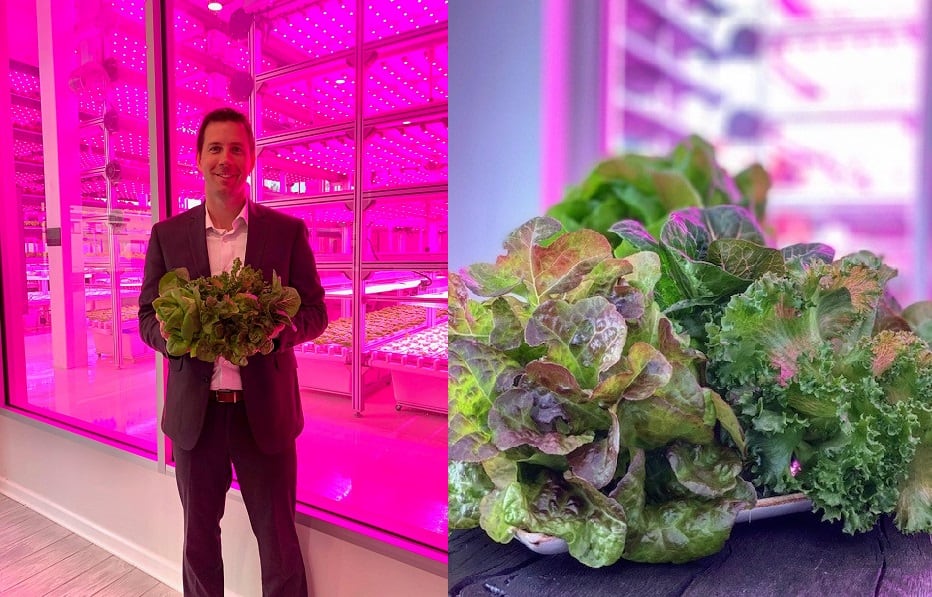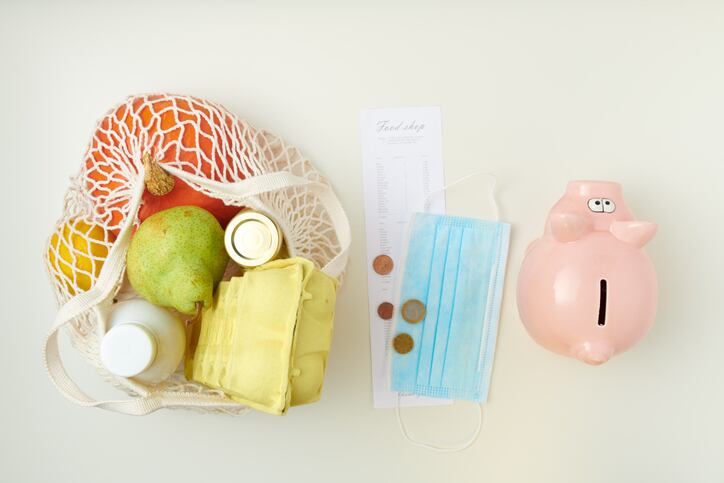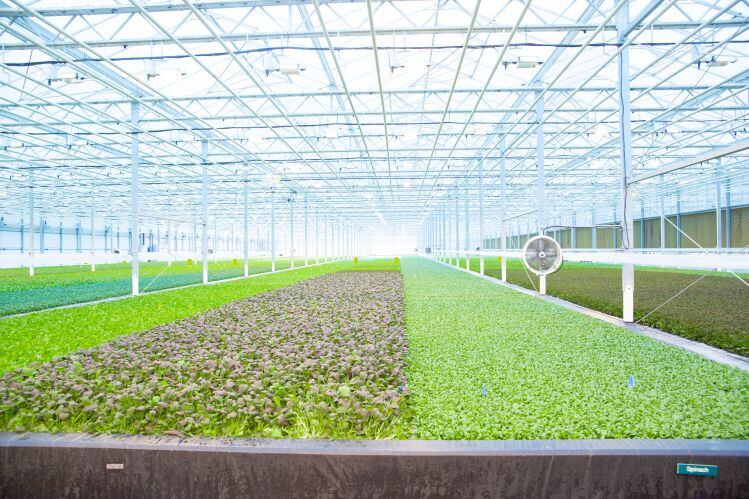Following a $150m fundraise completed earlier this year, Kalera -- which currently operates two growing facilities in Orlando (one at the Orlando World Center Marriott) -- is slated to have six commercial growing facilities open and operating across the US by the end of next year. The company is currently constructing other facilities in in Atlanta, Houston, and Denver which will also open in 2021.
"With our current expansion, I can boldly say Kalera is the largest and has more heads of production [in vertical farming] of anybody else in North America," Malechuk told FoodNavigator-USA, adding that the company has more plans for domestic as well as international expansion.
While the company's initial focus has been foodservice, Kalera pivoted to retail this year as the pandemic took its toll on all levels of the restaurant industry. Kalera lettuce products are currently sold in Publix stores in Florida with more retailers coming on board later this year and in 2021.
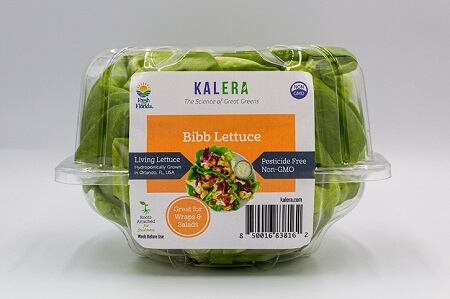
Affordable to all
The ultimate goal for the company, said Malechuk, is to make fresh, locally-grown, leafy greens accessible to all consumers at an affordable price year-round, and indoor vertical farming, Malechuk believes, is the most efficient and viable path forward.
"We’ve taken a very stringent approach to being affordable for everyday consumers to be able to purchase the product," he said. Kalera lettuce products retail for approximately $2.29 per package.
Within its controlled environment agricultural warehouses powered by LED lighting and proprietary plant science technology, Kalera can yield 300 times more leafy greens per square than traditional field-grown farming — using less than 5% of water that a traditional farm uses. The result, it claims, is clean, safe, and consistently-high quality lettuce and microgreens that are available year round.
Field-grown, greenhouses, hydroponics?
The field-grown lettuce industry faces constant environmental (from water shortages to raining ash from wildfires) and food safety (e.g. E.Coli lettuce recalls) challenges that will only become more difficult to manage as time goes on, claimed Malechuk.
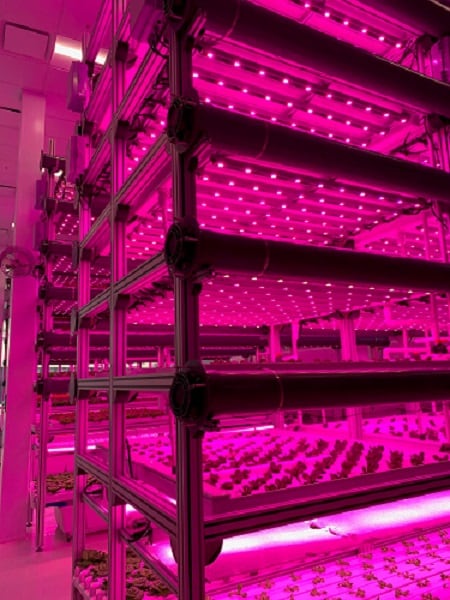
Also taking into account a rising global population and finite amount of farming land, added Malechuk, the food industry has to find more ways to feed a growing population.
Indoor agriculture farming, which includes indoor greenhouses that rely on sunlight to grow produce and hydroponic indoor vertical farms which uses artificial light, is a booming industry and is seen as large part of the solution.
According to Grandview Research, the global indoor farming market size was estimated at $29.68bn 2019 and is expected to reach $50.3bn by 2025. In 2018, greenhouse-type facilities held the dominant share with approximately 70% of the market, while vertical hydroponic farming facilities are expected to exhibit the fastest growth rate of 18% CAGR between 2019 and 2025, Grandview Research reported.
According to Malechuk, indoor vertical farms where greens are grown hydroponically deliver a more consistent product year-round compared to indoor greenhouses.
"This time of year you’ll notice that the size of those products (grown in greenhouses) shrink down to the palm of your hand. And there’s a lot of reasons for that – the days are shorted, the sunlight is not as bright, the air is cooler – so you see mass fluctuations in the quality of the product. In the wintertime, those greenhouses generally have to have massive amounts of heat and light put into them as well," he said.
Additionally, indoor vertical farming can get closer to the consumer cutting down on transportation and trucking to and from retailers, according to Malechuk.
"One of the things that we’re really excited about is we can be right where the customer is and in conjunction with our distributor. Literally, we can be in their warehouse or connected directly to their warehouse and go directly to their customer with locked-in pricing and uniform product and with no hands touching it," he added.
"When you take into account the carbon footprint it takes to transport the product, you definitely come out ahead."
'A viable part of the solution'
While Malechuk does not contend that controlled environment agriculture can solve all problems related to field-grown produce or fully replace conventional outdoor farming practices -- as some produce varieties fare better when grown outdoors and the indoor ag technology to cultivate them indoors "isn't there yet," he said -- it is the "future of food," he said.
"I don’t see us in the immediate future fully replacing anything, but we’re going to become a very viable part of the solution," he said.
"We’re going to have 40 million heads of lettuce in production, and that number is going to massively jump up. We’re going to take a lot of market share."

